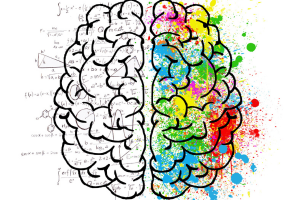Neuropsychological Assessments

What are Neuropsychological Assessments?
Neuropsychological assessments are specialized tests used to evaluate brain function and cognitive abilities. These assessments help in diagnosing and managing conditions affecting memory, attention, problem-solving, and emotional regulation. They are widely used for individuals with neurological, psychiatric, and developmental disorders.
Why Are Neuropsychological Assessments Done?
Neuropsychological tests are performed to:
- Diagnose Cognitive Disorders – Conditions like dementia, Alzheimer’s disease, and mild cognitive impairment.
- Evaluate Brain Injuries – Assess cognitive changes after a stroke, head trauma, or brain surgery.
- Detect Learning Disabilities – Identify issues like dyslexia, ADHD, and intellectual disabilities.
- Monitor Psychiatric Conditions – Assess cognitive impact of depression, schizophrenia, and anxiety disorders.
- Plan Rehabilitation and Treatment – Guide therapy for neurological and psychiatric conditions.
- Assess Effects of Medical Treatments – Evaluate cognitive impact of medications or surgeries affecting brain function.
What Do Neuropsychological Assessments Measure?
These tests assess different brain functions, including:
- Memory – Short-term and long-term memory recall.
- Attention and Concentration – Ability to focus and process information.
- Language Skills – Understanding and expressing language.
- Problem-Solving and Reasoning – Logical thinking and decision-making.
- Motor and Coordination Skills – Fine and gross motor abilities.
- Emotional and Social Functioning – Mood and behavior evaluation.
- Executive Functioning – Planning, organization, and impulse control.
How is a Neuropsychological Assessment Conducted?
- Clinical Interview – The doctor discusses medical history, symptoms, and concerns.
- Testing Phase – A series of written, verbal, or computerized tests are performed.
- Observation – The specialist observes behavioral and emotional responses.
- Report and Diagnosis – The results are analyzed to create a detailed cognitive profile.
- Feedback Session – The doctor discusses findings and suggests interventions.
- Treatment Plan – Recommendations for therapy, lifestyle changes, or medical interventions are provided.
How to Prepare for a Neuropsychological Assessment?
- Get enough rest the night before.
- Eat a balanced meal to maintain focus.
- Bring medical records and a list of current medications.
- Wear comfortable clothing.
- Stay relaxed and follow the examiner’s instructions.
- Inform the examiner of any concerns or conditions affecting performance.
Benefits of Neuropsychological Assessments
- Early Detection of Disorders – Helps identify cognitive issues before they worsen.
- Personalized Treatment Plans – Allows for customized therapies based on individual needs.
- Better Understanding of Cognitive Strengths and Weaknesses – Helps in career planning and daily activities.
- Objective Measurement of Cognitive Changes – Tracks improvements or declines over time.
- Improved Quality of Life – Ensures proper interventions to enhance mental well-being.
Are There Any Risks Involved?
Neuropsychological assessments are safe and non-invasive. They do not involve any physical discomfort. However, they may be mentally tiring, as they require concentration and problem-solving over an extended period. If needed, breaks are provided to ensure patient comfort.

Services
- Consultation for all mental health disorders
- Depression and mood disorders
- Anxiety
- Alcohol, opioid, cannabis addictions
- Screen and Phone addictions
- OCD
- PTSD
- Schizophrenia and other psychotic disorders
- Insomnia
- Eating disorders
- Personality disorders
- Unexplained behavioural changes
- Anger outbursts
